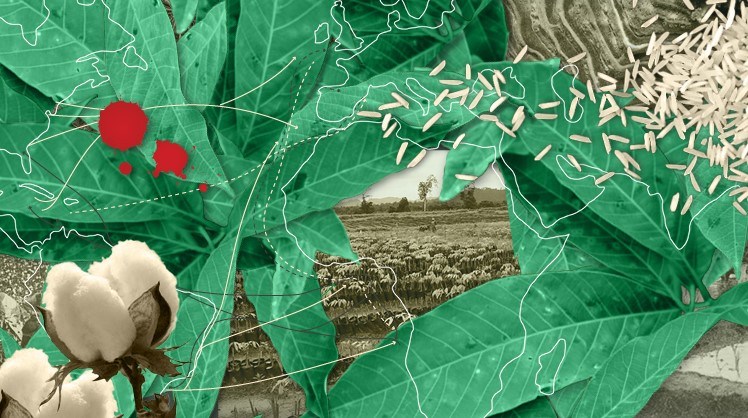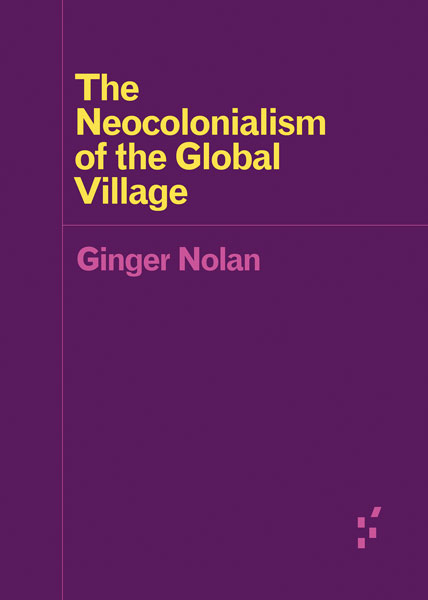The Plantationocene Series: Plantation Worlds, Past and Present (2019)
Filed under book | Tags: · anthropocene, capitalism, environment, land, plantation, plantationocene, plants, politics

“The Plantationocene is an alternate name for the epoch often called the Anthropocene. Inspired by the scholars and artists visiting University of Wisconsin–Madison as part of the 2019-2020 Plantationocene Sawyer Seminar, this series aims to create a conversation about multiple forms of plantations, both past and present, their materialities, the economic, ecological, and political transformations they wrought, and their significance to the making of human bodies, capitalism, and land over the course of four centuries.”
Contributors: Sophie Sapp Moore, Monique Allewaert, Pablo F. Gómez and Gregg Mitman; Deborah A. Thomas; Raina Martens and Bii Robertson; Leanne Day and Rebecca Hogue; Kwynn Johnson; Donna Haraway and Anna Tsing, a.o.
Edge Effects dossier
Publisher Center for Culture, History, and Environment (CHE), Nelson Institute for Environmental Studies at the University of Wisconsin-Madison, 2019
Creative Commons BY-NC-ND 4.0 International License
Clare Birchall: Shareveillance: The Dangers of Openly Sharing and Covertly Collecting Data (2017)
Filed under book | Tags: · data, dataveillance, filesharing, open data, protocol, secrecy, sharing, transparency

“In an era of open data and ubiquitous dataveillance, what does it mean to “share”? This book argues that we are all ‘shareveillant’ subjects, called upon to be transparent and render data open at the same time as the security state invests in practices to keep data closed. Drawing on Jacques Rancière’s ‘distribution of the sensible’, Clare Birchall reimagines sharing in terms of a collective political relationality beyond the veillant expectations of the state.”
Publisher University of Minnesota Press, Minneapolis, 2017
Forerunners: Ideas First series, 20
Creative Commons BY 4.0 License
ISBN 1517904250, 9781517904258
xii+72 pages
Reviews: Kevin Walby (Surveillance & Society, 2018), Clare Southerton (Media Theory, 2018).
Interview with author (Francien Broekhuizen et al., MeCCSA, 2016).
Ginger Nolan: The Neocolonialism of the Global Village (2018)
Filed under book | Tags: · colonialism, global village, neocolonialism, power

“The term ‘global village’—coined in the 1960s by Marshall McLuhan—has persisted into the twenty-first century as a key trope of techno-humanitarian discourse, casting economic and technical transformations in a utopian light. Against that tendency, this book excavates the violent history, originating with techniques of colonial rule in Africa, that gave rise to the concept of the global village. To some extent, we are all global villagers, but given the imbalances of semiotic power, some belong more thoroughly than others. Reassessing McLuhan’s media theories in light of their entanglement with colonial and neocolonial techniques, Nolan implicates various arch-paradigms of power (including ‘terra-power’) in the larger prerogative of managing human populations.”
Publisher University of Minnesota Press, Minneapolis, 2018
Forerunners: Ideas First series, 25
Creative Commons BY-NC-ND 4.0 License
ISBN 9781517904869, 1517904862
69 pages

